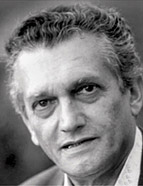

In 1949 he began the most fruitful of his activities: he was appointed to the permanent staff of economists at the United Nations (UN), and he joined the Economic Commission for Latin America (ECLAC) in Santiago de Chile. Celso Furtado was an intellectual and an interventor: with the positions he held from then on and the texts he wrote, he was able to provide input for public policies that strongly influenced Brazil and Latin America. The next year, when Argentinian economist Raúl Prebisch took over the executive secretariat of ECLAC, he was appointed director of the Development Division. Prebisch had already built up a critique of the universalising models of the economic theories produced by developed countries. He stated that development did not respond to criteria that would allow the advantages of the international division of labour to be asserted, especially considering the asymmetry established in exchanges between producers of raw materials and producers of manufactured goods. On the path opened up by this reflection—and already announced in his doctoral thesis—Celso Furtado elaborated his interpretation of the underdevelopment of Brazil and Latin America, as well as his political stand to overcome the asymmetry that had been denounced and historically constructed. It was a time of travelling and intense study. He published his first international article, " Formação de capital e desenvolvimento econômico " [Capital formation and economic development], written for the Revista Brasileira de Economia [Brazilian Journal of Economics] and translated for the International Economic Papers in 1952. In 1953 he took over the presidency of the ECLAC/BNDE ( Bando Nacional de Desenvolvimento Econômico [National Economic Development Bank]) Mixed Group, with the main task of adapting the planning of global industrialisation and development to the Brazilian context, as proposed by ECLAC. This work was presented in the document " Esboço de um programa de desenvolvimento, período de 1955-1962 " [Outline of a development programme, period 1955-1962], which became essential for President Juscelino Kubitschek de Oliveira's Target Plan between 1956 and 1960. In the 1950s, between ECLAC missions to Brazil and Mexico and studies at the University of Cambridge, he published the books A economia brasileira [Brazilian Economy] (1954), Uma economia dependente [A dependent economy] (1956), and his most important book, A formação econômica do Brasil [The economical formation of Brazil] (written in 1957 and published in 1959), which were then translated into nine languages. The first Brazilian edition of this last book was the result of a study period in Cambridge and came out in 1959, when Furtado had already left ECLAC to take up a directorship at the BNDE in 1958. He went on to create the Conselho de Desenvolvimento do Nordeste (CODENO) [Northeast Development Council] in 1958 and the Superintendência de Desenvolvimento do Nordeste (SUDENE) [Northeast Development Superintendence] in 1960 at the request of President Juscelino Kubitschek, of which he was the first president.
This work is financed by national funds through FCT - Foundation for Science and Technology, I.P, in the scope of the projects UIDB/04311/2020 and UIDP/04311/2020.
